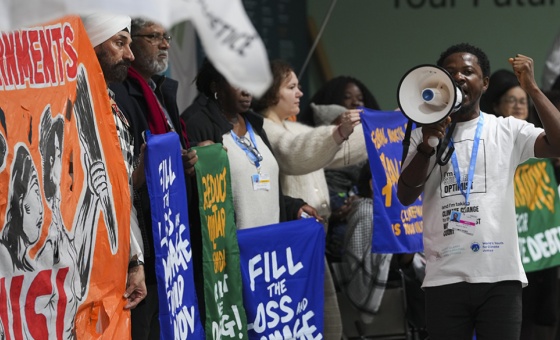This is the last article you can read this month
You can read more article this month
You can read more articles this month
Sorry your limit is up for this month
Reset on:
Please help support the Morning Star by subscribing here
ENERGY prices are set to rise by 9 per cent in October, experts revealed today — with the “alarming” increase accompanying winter fuel payment cuts.
A typical household’s energy bills are expected to rise to £1,714 a year, up from £1,568, according to energy consultancy Cornwall Insight.
The group said that while the figure is less than the cap previously predicted, there are also likely to be further “modest increases” in January and more rises early in the year due to “recent tensions in the Russia-Ukraine war.”
Energy regulator Ofgem will announce the energy price cap for October to December this Friday.
Cornwall Insight has called for reform to the price cap or introduction of social tariffs but warned that longer-term solutions are also vital, such as increasing domestic energy production.
End Fuel Poverty Coalition co-ordinator Simon Francis said that instead of offering help, the government has axed winter fuel payments to millions and refuses to confirm if the Household Support Fund will be extended.
He said: “It’s another difficult week on the cards for households who will learn just how bad energy bills will be this winter.
“The reality is that bills will go up compared to today and will be around 65 per cent higher than they were before the energy bills crisis started.
“Not only do we need to see urgent movement on both these issues, but we need to see action to reduce energy debt and changes in the rules to reset Britain’s broken energy system so it is on the side of consumers.
“We back the government’s ambition to bring down bills in the long term through more renewables and a Warm Homes Plan, but it also needs to look at shorter-term measures too.”
Greenpeace UK’s Ami McCarthy warned that energy bills will remain unpredictable “until we get off climate-wrecking gas and its volatile prices.”
She also voiced concerns about the price jump following cuts to winter fuel payments, calling it a “devastating blow to the millions of households still grappling with the cost-of-living crisis.”
“As well as speeding up the transition away from fossil fuels and introduction of a social tariff for energy bills, it’s imperative that the government ramps up its ambition for insulating homes — the only sure-fire way to enable households to reduce their energy usage for good,” she said.
“But with summer drawing to a close, emergency support packages will also be needed to ensure millions of people won’t be left out in the cold this winter.”
Fuel poverty campaigners said today they have put forward nine rules for the government to “send a clear signal that they are on the side of consumers.”
A Warm This Winter report earlier this year put forward 15 recommendations to Ofgem to help cut bills, of which six have been implemented.
But campaigners have said the other nine proposals are vital, including bringing down standing charges, capping exit fees and improving the governance of the energy industry.
Standing charge reforms alone could see a reduction in household costs by £152.06, they said.
Delivering these changes would require changes to Ofgem regulations and government funding as well as action taken to protect low-income and high-usage households, such as those who rely on energy for medical needs.
Warm This Winter spokeswoman Fiona Waters said: “The new government has inherited a nightmare set of rules that are clear hurdles to creating the fairer energy system that the public are crying out for.
“With energy bills forecast to increase again in October, this problem is only going to get worse if new ministers do not step in now.
“Now is the time to bring back fairness with urgent action to support struggling households through the next winter and a commitment to end profiteering by properly taxing the wider energy industry.”
Dylan Johnson, from Future Energy Associates which compiled the reports, said: “More can and should be done by the energy regulators.
“Overall, Ofgem must become more proactive in identifying problems with our energy system and more efficient in enacting the necessary changes to protect the most vulnerable in our society.
“For now, Ofgem must implement immediately actionable solutions and not shy away from making the key long-term decisions that can achieve a fairer, greener energy system.”












